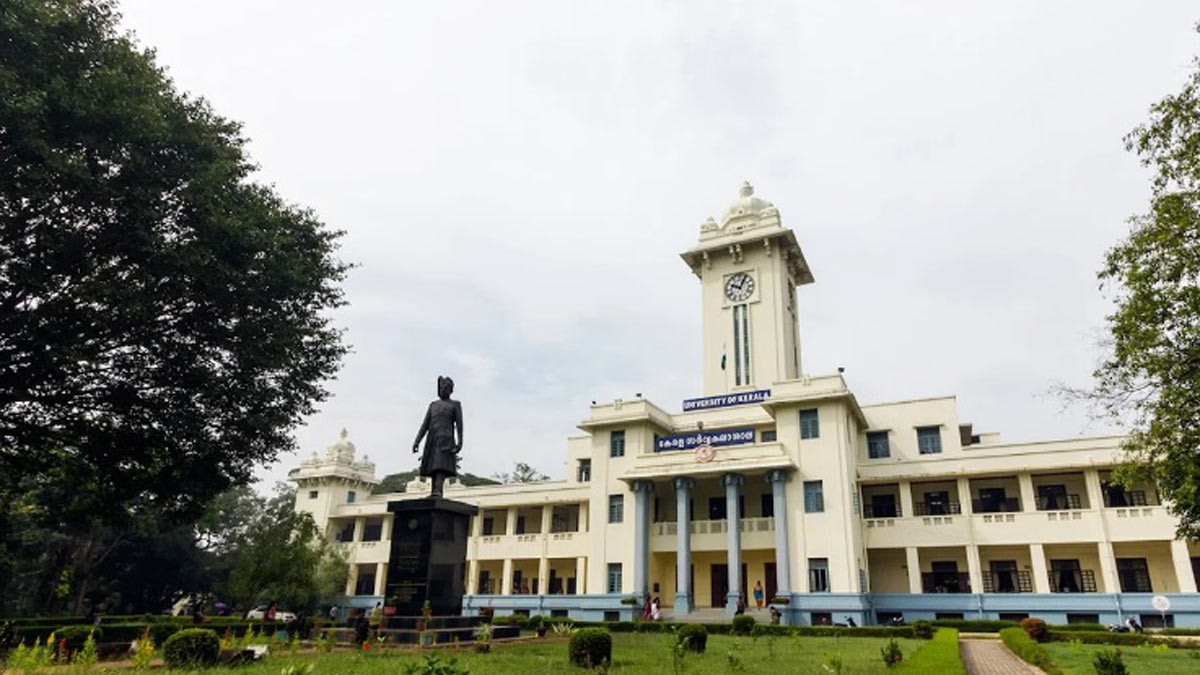Kerala’s higher education crisis: Why nearly half the seats in prominent state universities could go vacant this year

In October 2024, Kerala’s Higher Education Minister R. Bindu presented on the Assembly floor the number of total and vacant seats in the state’s four most prominent universities—Kerala, Calicut, MG, and Kannur. The total number of seats available for undergraduate courses stood at 2,07,115, while postgraduate courses had 30,825 seats. Shockingly, 85,525 undergraduate seats and over 13,000 postgraduate seats remained vacant—nearly 42 per cent in both categories.
Observers in the higher education sector warn that this year, the number of vacant seats may surpass even those figures, citing widespread administrative disruptions, structural paralysis across universities, and a growing public disillusionment with the higher education system in the state.
Currently, 13 out of 14 state universities in Kerala are functioning without full-time Vice Chancellors, relying instead on interim or temporary arrangements. At Kerala University, an escalating standoff between the temporary Vice Chancellor and the Syndicate has created a state of administrative paralysis. The university is witnessing an unprecedented situation in which two individuals are simultaneously claiming the position of Registrar.
The deadlock began on July 2, when Vice Chancellor Mohanan Kunnummal suspended Registrar K.S. Anil Kumar for cancelling a private event at the Senate Hall attended by Governor Rajendra Arlekar, where a portrait of Bharat Mata with a saffron flag was displayed. On July 6, the Syndicate—dominated by Left-affiliated members—revoked Anil Kumar’s suspension, arguing that the Vice Chancellor lacked the authority to suspend the Registrar under the Kerala University Act.
However, the revocation took place in a meeting that the VC had formally dissolved and exited, rendering it invalid in his view. Meanwhile, Mini Dijo Kappan, Director of Planning, was given full additional charge as Registrar by the VC. Anil Kumar, claiming his suspension had been revoked, also resumed duties—leading to a situation where both began functioning simultaneously as Registrar.
Initially, Kappan retained access to the university’s e-file system, while Anil Kumar’s access was blocked. Anil Kumar proceeded to send files physically to the VC for approval, but the VC refused to sign them, stating that Anil Kumar remained suspended. Now, Kappan’s e-file access has also reportedly been revoked, allegedly under Syndicate pressure.
Amruth G. Kumar, Professor and Dean (Academic) at the Central University of Kerala, warned that the ultimate victims of this administrative freeze are the students. “A lot of student-related files—whether related to examinations, admissions, migrations, or other essential requirements—are now caught in this ping-pong,” he said.
As many as 1,500 student certificates, mostly degree certificates, are reportedly stuck due to the impasse.
“Now, it’s like the VC is on one side, and the Syndicate is on the other. The university is practically deadlocked,” says R.S. Sasikumar, higher education activist and member of the Save University Campaign Committee. “This is admission season. Students need to be admitted, equivalency certificates issued for those from other states, and new batches must commence across colleges—it’s the most crucial time of the year.”
Sasikumar points out that although the Governor, as Chancellor, generally refrains from interfering in the day-to-day affairs of the university, he has the authority to act in extraordinary circumstances and can even suspend the Syndicate if needed. However, such a move could further worsen the already strained relationship between Raj Bhavan and the state government.
The state government and the Raj Bhavan already have serious differences with regard to the formation and constitution of search-cum-selection committees for appointing Vice Chancellors in state universities. And this situation had led to the situation where the majority of the state universities are now without regular VC.
Notably, the Private Universities Bill and the University Laws (Amendment) Bill—which significantly curtail the powers of the Chancellor, particularly in the appointment of Vice Chancellors—have been passed by the Kerala Assembly but remain pending with the Governor, who has yet to act on them.
Dr Kumar notes that issues in state universities are shaping the public consciousness about the higher education system in the state in a highly negative light. “Already, many colleges have numerous vacant seats. This is true across almost all aided and government institutions. And, as these administrative issues also arise, they reflect a deep and dangerous impact on our public education system. There’s no doubt about that,” he says.
India